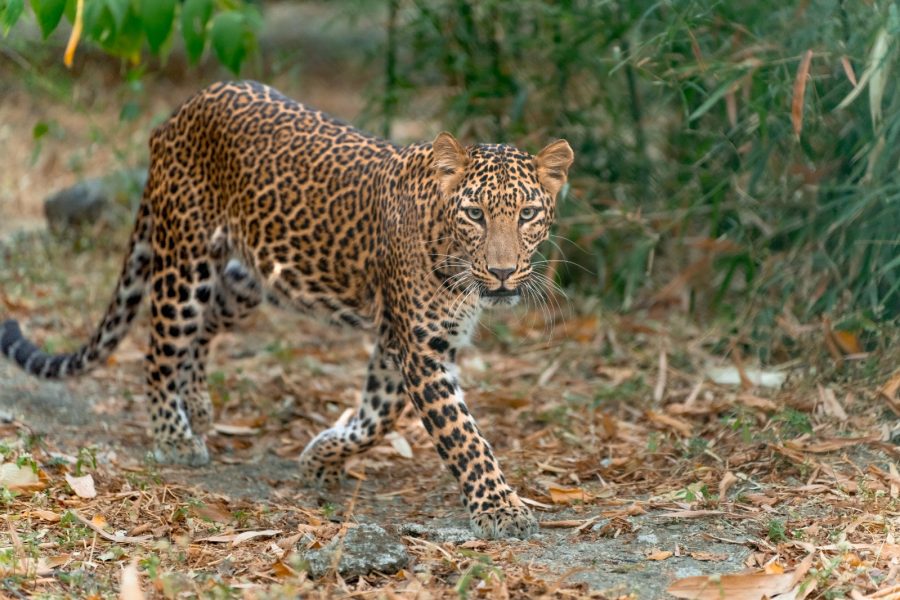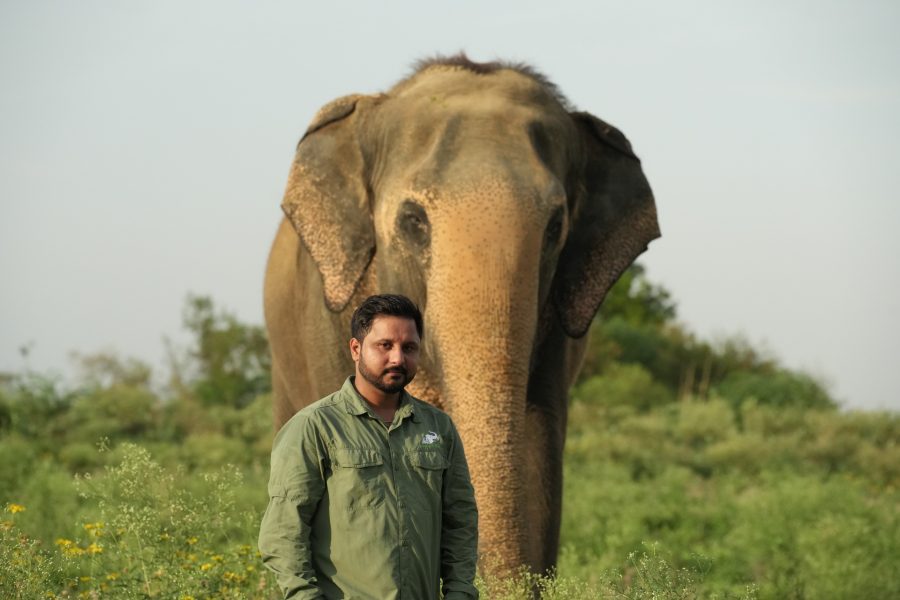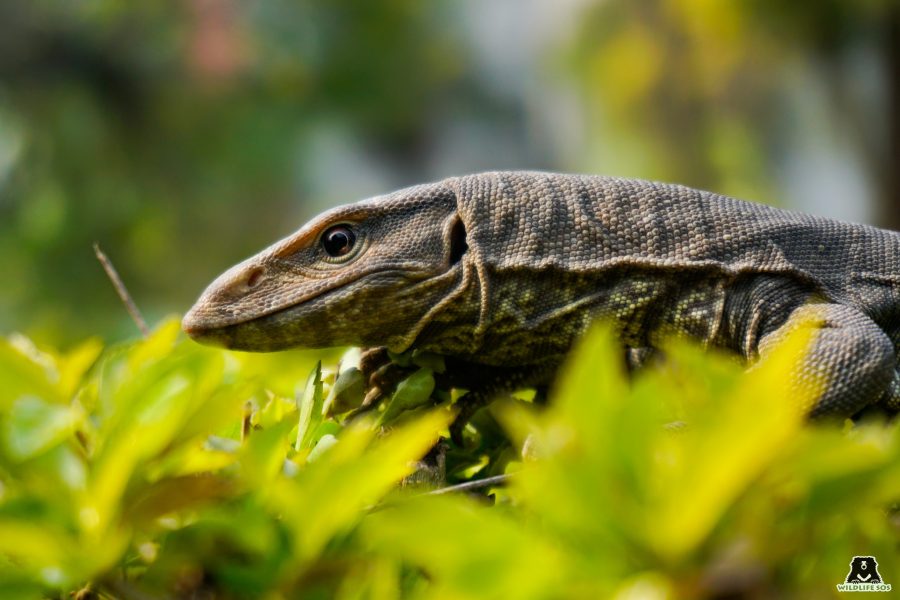Known as a gravedigger (Kabar Bijju) in Delhi, Baby stealer (Bhaam) in Kolkata, and Onion thief (Kandechor) in Maharashtra – the Asian Palm Civet has a myriad of epithets attached to it. Some see the rare wild animal as a “bad omen” while others consider it to be a pest – a nuisance to the daily rhythm of urban life.
Superseded by its unfair reputation, the Asian Palm Civet is in reality a docile creature. Found in the tropical areas of Asia and Africa, civets are cat-like animals that can survive a wide range of habitats. They are nocturnal, solitary creatures, who are rare to spot, only venturing out of their burrows at night to forage. These omnivores feast on pulpy fruits, insects, and seeds.
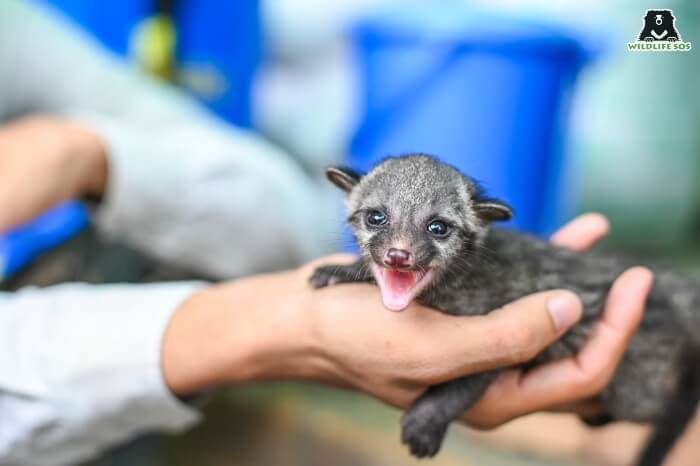
Due to rapid urbanization, civets are being forced to navigate the unknown terrain of cities, falling victim to the various perils in the concrete jungle. They are presently under threat from habitat encroachment, human-conflict situations, and poaching as the glandular secretion of civets are popular for creating musks and perfumes. Wildlife SOS frequently rescues Asian Palm Civets from distress situations like road accidents or trappings in people’s homes, airports, libraries, etc.
In a perturbing incident, Wildlife SOS recently rescued a litter of five baby civets, barely 15 days old. Their mother had been injured by a pack of feral dogs, who she fought with fiercely to protect her children. While the mother succumbed to her injuries, she managed to save her babies who were found huddled in the premises of a farmhouse in Sultanpur, Delhi. Worried about their safety, the residents contacted Wildlife SOS on its 24-Hour helpline number (+91- 9871963535).
Identified as 3 males and 2 females, the frightened baby civets were rescued by Wildlife SOS. Asian Palm civets are classified as altricial, which means young civets depend on care from a parent for survival. These adorable kitten-like babies are born with their eyes closed and fur covering their bodies, weighing only 80 grams at birth. Their eyes only open 11 days after birth, gleaming with naive curiosity. Baby civets don’t even leave the comfort of their tree hollows until they are fully weaned off their mothers at around two months of age.
Incapable of eating and surviving on their own, the baby civets were transferred the Wildlife SOS transit facility.
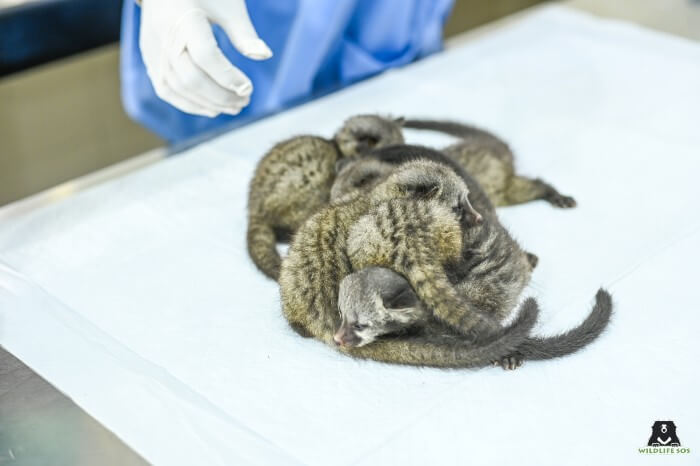
The little civets have quickly come to hold a special place in the heart of our staff at the Transit facility, who ensure that the pups recuperate fully from the trauma they endured. Caring for these little ones is no easy feat. Baby animals have a delicate immune system and can easily pick up infections. To avoid this, the baby civets have been put in an isolation area, where they can comfortably roam around without the risk of contracting diseases from other animals. To ensure they receive proper nutrition, the baby civets are given a special milk formula, fed through a milk bottle, every three hours.
While the civets have seamlessly blended in with the Wildlife SOS family, our priority remains to release them back into their natural habitat once deemed fit. To ensure a safe transition back into the wild, the baby civets are handled by our staff only when required. This ensures the civets can become independent and effortlessly survive in the wild.
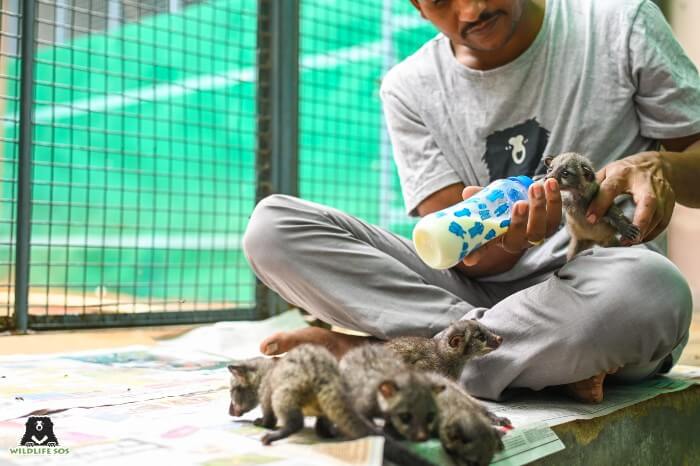
With adequate love and care, the baby civets have evolved into gregarious pups, actively playing around. As our care staff takes them outside during the day, the babies soak up warmth from the sun and relish in the cool breeze.
Unfortunately, the harrowing story of the 5 baby civets is only one amongst the countless orphaned civets. It was only in June of 2020 that Wildlife SOS had rescued a baby Civet, barely 20 days old. The civet was found trembling in fear inside a store that had been closed for two months due to the ongoing pandemic.
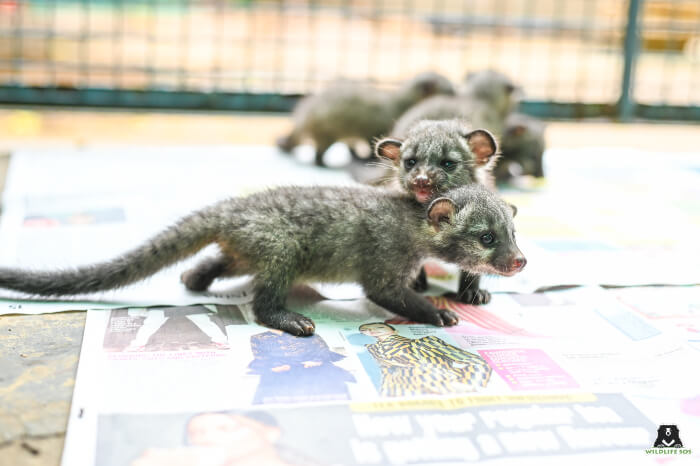
The loss of a mother for baby civets leaves these docile creatures to navigate a brutal world on their own – a world where they are considered baby stealers, gravediggers, onion thieves, or bad omens. If they somehow manage to survive in a world where they are considered pests, the threat of poaching continues to loom over these sublime creatures. Poached to make perfumes and even the most expensive coffee in the world known as Kopi Luwak, Asian Palm Civets are no stranger to man-made tribulations.
While humans carelessly push around this quirky mammal for greed or convenience, the reality is we need the Asian Palm Civet much more than they need us. These mammals play an integral part in our ecosystem. Similar to snakes, Civets control the rodent population, without which unimaginable and potentially mortal diseases would be widespread. They are also prime contributors to the dispersal of seeds as they often feed on fruits, berries, and coffee beans.
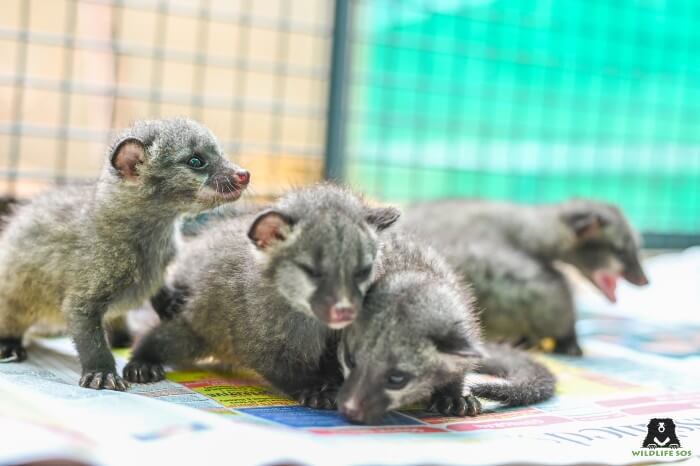
An integral part of our urban biodiversity, Asian palm civets deserve our protection.
To find out more about how you can support Wildlife SOS in rescuing distressed animals, click HERE.


